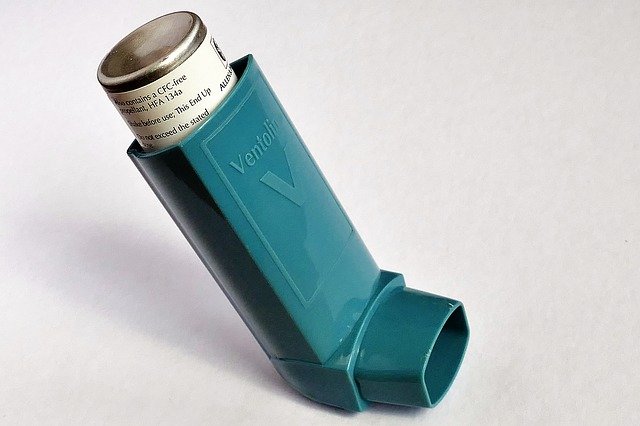
Asthma affects over 300 million people worldwide and its prevalence is on the increase. There are around half a million people with moderate to severe forms of asthma in the UK.
In a new study, researchers have shown why the first pill for asthma in 20 years can help reduce asthma attacks.
The study was conducted by researchers from Leicester (UK) and Vancouver (Canada).
They have shown that the investigational drug, Fevipiprant (an oral, selective prostaglandin D2 receptor antagonist), reduces the amount of smooth muscle in the airway lining.
The research shows for the first time that Fevipiprant not only reduces inflammation in the airways, but also reduces the amount of muscle in the lining of the airway.
This is likely to explain some of the effects seen in the symptoms and breathing tests following treatment.
An increase in airway smooth muscle is the strongest predictor of reduced airflow into the lungs due to airway narrowing.
It significantly increases the likelihood of more frequent asthma attacks and even asthma-related deaths.
There is currently no routinely-available drug on the NHS that targets smooth muscle mass to reduce asthma symptoms.
For people with severe asthma, a procedure called thermoplasty, which uses thermal energy to decrease the amount of smooth muscle in the airways, may be offered.
This requires sedation in hospital and is not a cure, nor suitable for everyone. Most patients with severe asthma rely on high dose inhaled or oral steroids to manage their symptoms.
Fevipiprant’s potential to reduce the need for patients to take oral steroids either continuously or for attacks could be seen as a positive step, given the range of possible side-effects associated with steroids.
These include weight gain, osteoporosis, diabetes and high blood pressure. The more patients take steroids to manage their asthma symptoms, the less effective the same doses become in future.
The research was funded by the Swiss pharmaceutical company, Novartis, AirPROM and the NIHR Leicester Biomedical Research Centre.
The team suggests Fevipiprant has the potential to significantly improve the treatment of asthma patients who do not achieve disease control on optimised inhaled therapy.
The findings are published in Science Translational Medicine.
Copyright © 2019 Knowridge Science Report. All rights reserved.
Source: Science Translational Medicine.



